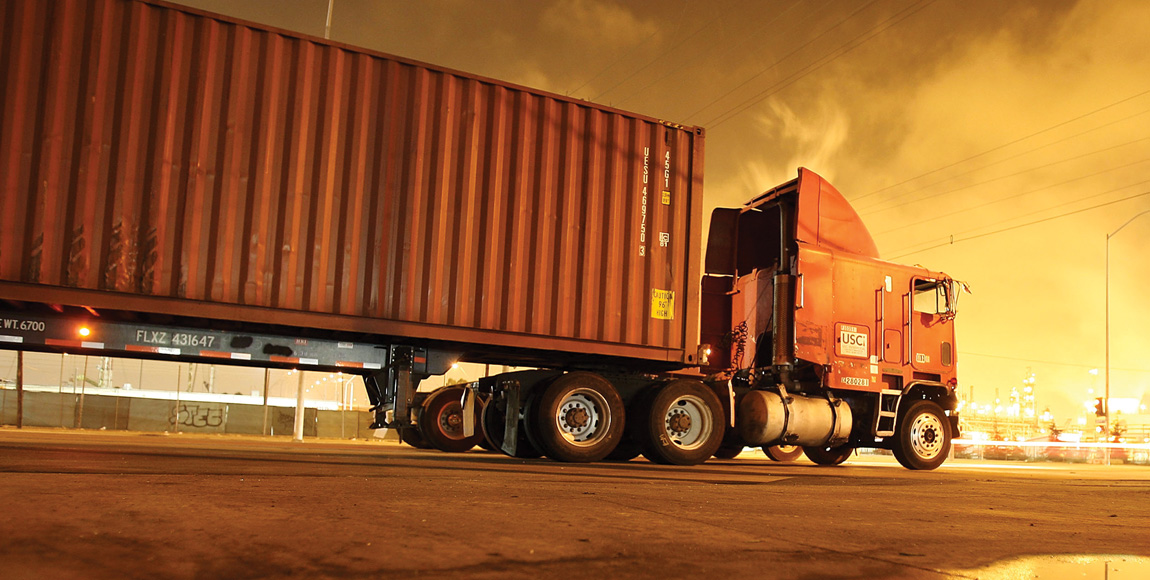Reducing cross-border transit risks

While cross-border freight-transit risks need to be effectively managed, costs associated with lengthy delays at customs points need to be reduced. Fesarta has identified the IRU TIR Carnet as the only possible solution that will address the issue effectively
Along with the cross-border freight-transport industry, Fesarta recognises the key role of customs in protecting excise revenue. Accordingly, there is no question that transit risk needs to be effectively managed.
An effective transit system should help customs to identify and facilitate lower-risk movements, which will provide sufficient security, guarantees and information to enable officials to apply controls at corridor level, rather than at national level.
However, it must be recognised that systems that are used to control transit risks – which are based on national bonds and sealing of loads at borders – lead to additional cost burdens on the private sector, arising from:
• Delays caused by waiting for seals or escorts;
• The cost of the seals and escorts;
• Multiple declarations using different documents;
• Delays and costs of inspections;
• Potential rejection of cargo by customers if the integrity of the load has been compromised; and
• Environmental, safety, health and crime risks associated with long queues of trucks.
International cross-border transit-risk systems should include optimum features and benefits, while minimising risks to cargo owners and border authorities. The systems should be economical to implement and should offer large reductions in transit time as well as cost.
The systems should operate using standardised methodology with minimum variation in pricing to simplify transactions and facilitate maximum efficiency. These are the primary objectives of risk-management procedures, and integrated conformations make the most commercial sense for import-export operators.
For acceptability, it is important that proposed systems can demonstrate evidence of extensive and effective international usage to revenue authorities. This evidence must include advanced systems for risk profiling, monitoring and control – with the aim of providing assurances of reliability and security. Fesarta has identified the IRU TIR Carnet as the only possible solution that will address all of the above effectively.
The unacceptably long waiting periods at borders – ranging from many hours to several days – result in additional transport time and more cost, which have a negative impact on trade. The IRU TIR Carnet provides an effective and simple solution for all customs authorities – the transmission of electronic pre-declarations allows officials to assess risks and determine in advance which trucks should be subject to specific controls.
TIR trucks will be subject only to the scanning and stamping of the TIR Carnet, thereby enjoying speedy customs control and offering massive reductions in border waiting times and the associated transport costs.
TIR Carnet = Cost Savings:
• Reduction in transit time and costs;
• Simplification of the clearing process;
• Reduction in the amount of documentation required.
The estimated cost of a TIR Carnet for a transit movement covering four countries along the north-south corridor – South Africa, Zimbabwe, Zambia and Democratic Republic of Congo – will amount to about US$ 80 (about R1 120), compared to around US$ 450 (about R6 300) under the current national transit bond system.
The TIR system is available by arrangement between IRU and Fesarta as a viable solution to the current inefficiencies and costs incurred on Southern Africa’s major trade route.
Published by
Mike Fitzmaurice
One Comment
Leave a comment Cancel reply
focusmagsa





In order to apply the TIR system, your country first needs to accede to the United Nations Customs Convention on the International Transport of Goods under cover of TIR Carnets of 1975, by depositing its instrument of accession with the Secretary-General of the United Nations in New York. After that, your government needs to address a number of roles and responsibilities including, but not limited to, the appointment of competent authorities, the authorization of a national association (affiliated with IRU) and the authorization of selected TIR Carnet holders.
An ‘arrangement’ with IRU will not do.